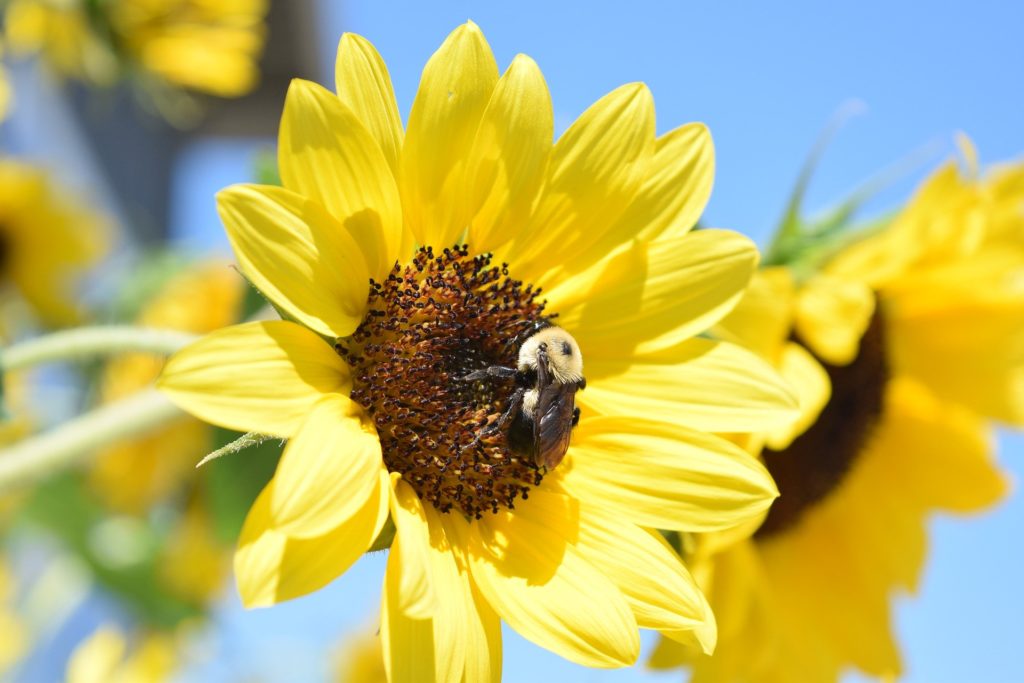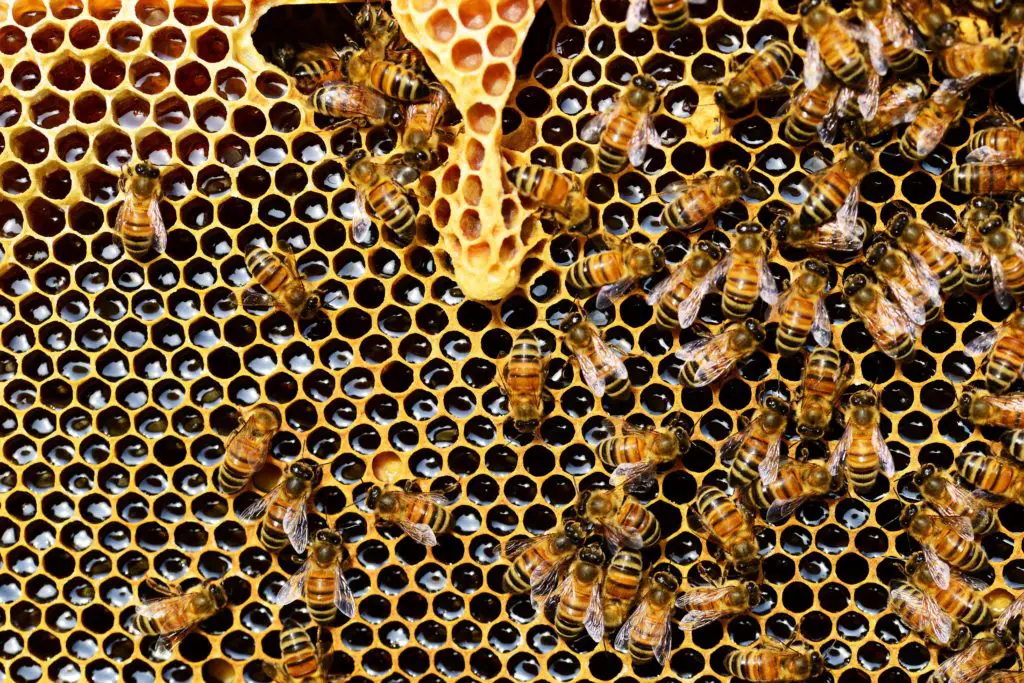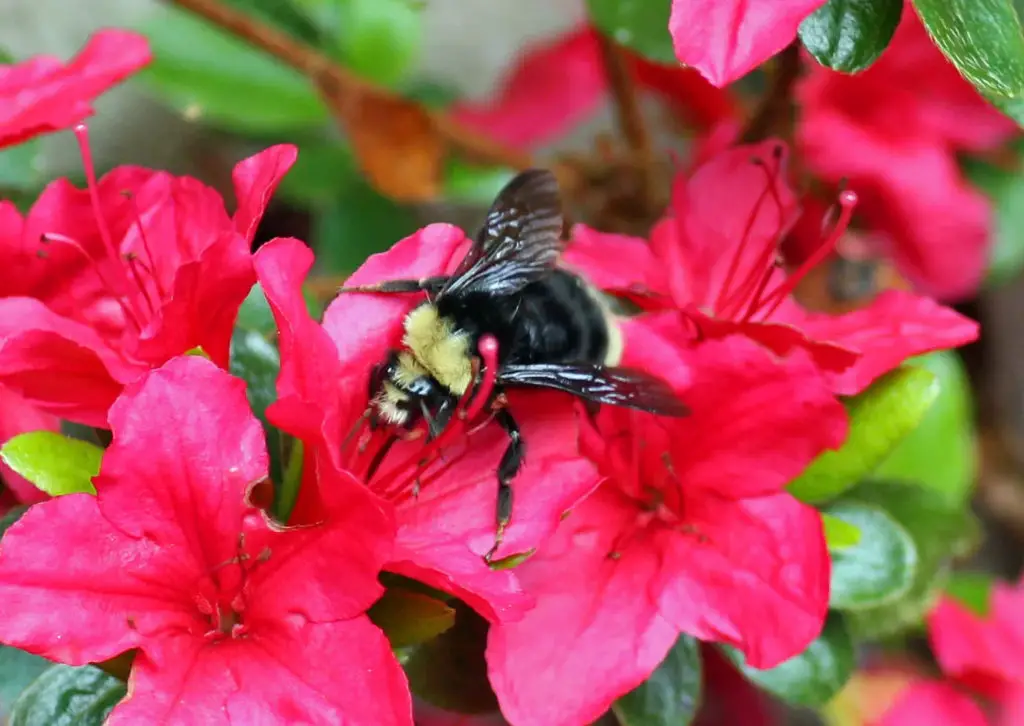Affiliate Disclaimer - As an Amazon Associate I earn from qualifying purchases.
It supports the website. So, Thank you
Have you ever thought about the fact that you don’t really see any bees flying around on an overcast day? It’s not something that many of us think about until it’s pointed out to us, but then it hits you; when was the last time you saw a bee on a cloudy day?
This leaves you asking yourself do bees come out on cloudy days? Well, the answer is largely, no.
Bees rely on the sun to navigate their way to nectar. While they may be seen on some rare occasions on cloudy days, they use other methods when it’s overcast to locate their food sources, many of which depend on staying close to the hive which is why you don’t really see them buzzing around.
But what about the rest of the year? It’s very uncommon to see a bee on a rainy day and you’ll almost certainly not see one in winter. So where do they go and how does the weather affect our honey-producing friends? In this guide, you’ll find out the answers to all of these questions and more.
Table of Contents
How Do Bees Function On Cloudy Days?
Bees are pretty sensitive little creatures in many ways and that includes being sensitive to the weather. If things change, even just a little, this can have a serious impact on the bees. Things like changes in wind direction, temperature, humidity and air pressure can all result in fewer bees being out and about.
Bees rely mainly on the sun for navigation. When this is covered on an overcast day, they’re not as easily able to find their way around. As a result of this, they tend to remain much closer to the hive so unless you have hives in your garden, you’re unlikely to see any bees.
But how do they gather nectar if they’re unable to leave the near vicinity? Well, that’s where things get incredibly impressive. Using special bee ‘dances’ and their memory, the bees are able to locate sources of nectar in the local area without having to rely on the sun.
Do Bees Come Out When It’s Raining?
You wouldn’t usually see any bees buzzing about when it’s raining but it isn’t impossible to spot one on a rare occasion. However, whether you see them or not will largely depend on how heavy the rain is.
When there’s just a spattering of drizzle, this might not deter the bees too much from going about their business. But if the heavens have really opened, they’ll retreat to the hive and stay there until the weather improves.
There are a couple of reasons for this. Primarily, those dark rain clouds will be blocking out the sun which, as we have discovered, the bees need for navigation. In addition to this, heavy rain with large water droplets can make flying incredibly difficult for bees. Think about their delicate wings and how they may perform when battered by raindrops; it’s not going to end well.
Even if they could fly, the bees would have to expend much more energy which is counterproductive to what they’re trying to achieve. In order to remain protected, it’s best for them to go back into the hive and wait out the storm.
It’s also important to keep in mind that when it’s raining heavily, the nectar isn’t quite as abundant so there’s very little point in the bees even bothering to go in search of it.

Where Do Bees Go In The Winter?
As winter comes around, you will notice that the number of bees you see drops significantly. This is largely because they tend not to fly once the temperature dips below around 60 degrees. During these periods, the bees head into the hive and become largely dormant.
They’ll huddle inside in one large pile with the queen right in the middle of this. Their main aim is to gather around the queen and keep her warm but they’re very smart when they do this. The bees at the edge of the huddle will naturally be cooler than those in the middle so over time, they’ll switch places so all bees get a chance at warming up!
Also during winter, food sources are more scarce so many beekeepers will supplement the bees’ natural diet with sugar. However, one thing to keep in mind is that bees don’t have as much need for energy in the winter as they are in this dormant state. Yes, they still need food but nowhere near as much of it.
If you do have bee hives, it is essential to make sure that you do not open it any more than is absolutely necessary throughout the winter. Opening it could let in too much cold air and chill the bees so much that it could lead to death. If possible, don’t open the hive at all.
Bees Can Predict Weather
It’s pretty fascinating in itself that bees are able to behave according to the weather but what’s really mind blowing is the fact that they may be able to predict upcoming weather. There has been some research to suggest that bees may increase their foraging activity in the days leading up to a storm. They’ll work for longer hours each day in preparation for the event and to ensure that they have enough food to see them through.
Conclusion
Bees are fascinating creatures and the way they behave can be affected by the weather. Since these little flying friends rely on the sun to navigate their way to nectar, they can’t do this on a cloudy day. Instead, they rely on their memory as well as bee dances to locate nectar sources close to the hive which is why you don’t see as many of them on cloudy days when the skies are overcast.




